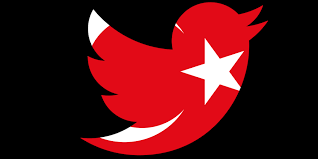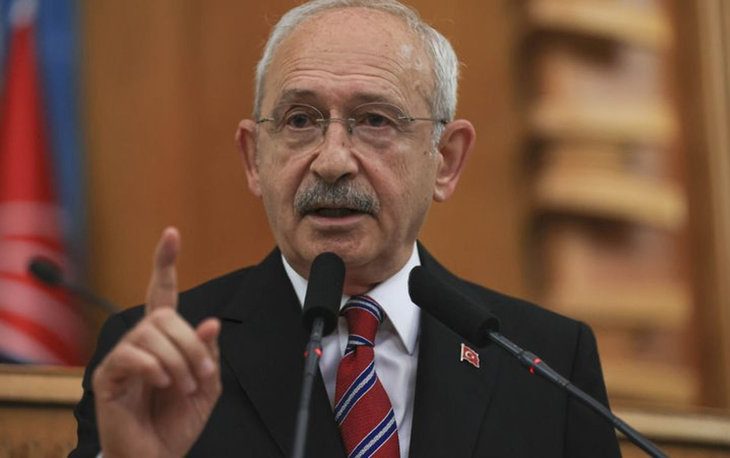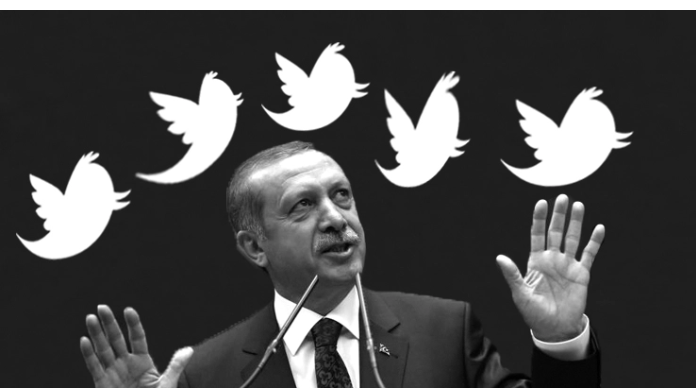Deutsche Welle: Why Erdogan attacks social media?
 social media-AKP
social media-AKP
The Erdogan administration has a love and hate relationship with social media. On one hand, its members, as well as AKP Congresspeople use Twitter frequently to disseminate their messages. Berat Albayrak is a notorious Twitter user. On the other hand, Erdogan and his lieutenants constantly attack the social media as a source of false news, moral decrepitude and “harmful” material. The answer is simple. While AKP almost exclusively controls main stream media, it has thus far failed to gain a presence among social media users. Two recent surveys, one by Gezici Polling Agency, the other by Istanbul Policy Center find that social media is affecting votes, with a particularly strong impact on Y and Z generations. Erdogan ais to control social media, because he knows how effective controlling the news flow is to sway voters’ choices. The current attacks presage a draconian censorship bill, claims Deutsche Welle.
A guidebook which calls for total surrender
In May, Turkey's Presidential Complex published its Guidebook for Social Media Use: 161 pages that lay out the "correct, healthy and secure use" of social media platforms such as Instagram, Twitter and Facebook. Fahrettin Altun, the head of media and communications for the presidency and the author of the guidebook's foreword, said people in Turkey were increasingly imperiled by ever-advancing digitalization. Altun said such problems had led him to advise President Recep Tayyip Erdogan to begin centralizing control of the digital domain. He believes that new tools are needed to ensure that the positives of technological advancement outweigh the negatives.
An instrument of censorship?
Dissidents and members of the media, however, see the guidebook as an instrument of censorship. They are concerned that the government is looking to expand the great influence it already exerts over Turkey's traditional media by taking control of social media, as well. To justify their concerns, critics point to such passages as: "We are a country confronted with manipulative information spread by global opinion crafters."
According to the guidebook, posts from government offices and ministries must be given priority on social media platforms. "In times of crisis, official government statements should be more widely seen," the guidebook instructs.
"We'll know just what this passage means when the first people are arrested following investigations into social media posts criticizing things like the economic crisis," says Fatih Polat, editor-in-chief of the opposition newspaper Evrensel.
Faruk Bildirici, the ombudsman for the Radio and Television Supreme Council (RTUK), which oversees media in Turkey, said some passages in the guidebook made him uneasy. For instance, the guidebook refers to social media platforms as weapons intended to destroy spiritual values in Turkey. That is also behind the central government's efforts to enforce more "morality" when it comes to social media.
"It is entirely unclear how it will be decided that one thing is ethical and another is not," Bildirici said. He has concluded that the loose terminology is to provide cover for authorities when pursuing dissidents.
The guidebook warns that "incomplete, incorrect or even fake news" can spread across social media platforms very rapidly. "Turkey's enemies, especially terrorist organizations, aim to spread lies and chaos," it claims.
Aiming at total control
It is estimated that the government controls as much as 95% of the mainstream media in Turkey, leaving members of the opposition, activists and dissidents with nowhere to go but online. That has worked well for some: Ekrem Imamoglu's victorious mayoral campaign in Istanbul in 2019 is proof. Imamoglu mobilized supporters for his surprise opposition win almost exclusively through social media channels, even creating a hashtag campaign that attained cult status.
The first step?
Polat, the Evrensel editor, said the guidebook was a step toward establishing government control over Twitter and other platforms. "Such guidebooks can only be taken seriously when written with input from independent scientists and experts," Polat said.
Gulin Cavus, founder of the Turkish fact-checking network Teyit said online disinformation was a growing challenge. But she says the threat doesn't come from the people as the presidential palace's guidebook claims.
"Government agencies are knowingly engaging in manipulation," Cavus said.
Excerpt only
You can follow our English language YouTube videos @ REAL TURKEY: https://www.youtube.com/channel/UCKpFJB4GFiNkhmpVZQ_d9Rg
And content at Twitter: @AtillaEng
Facebook: Real Turkey Channel: https://www.facebook.com/realturkeychannel/





